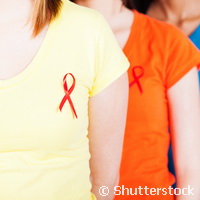Linking arms against HIV
For decades, scientists have been working in different fields to combat the pandemic spread of HIV/AIDS. The aim of the EU-funded EUROPRISE project ('European vaccine and microbicides enterprise') was to draw together two particular areas of research that had for many years moved forward independently in this crucial fight. The project, led by St. George's Hospital Medical School in London, gathered researchers in the fields of anti-HIV vaccines and anti-HIV microbicides. As such, it represents an unusual example of scientists breaking down long-established divisions between research disciplines, and by doing so, making possible new advances in HIV research. EUROPRISE partners carried out an integrated programme of research, coordinating a wide range of studies on vaccine and microbicide development, from early discovery through to the emergence of potential treatments. One unexpected consequence of the collaboration was the initiation by partners of new clinical trials, some of which involved a number of African countries. While EUROPRISE did not at first intend to undertake such trials, they were made possible thanks to the sharing of information and strategies between partners within the project. Scientists were able to fill some of the important gaps in European HIV research, gaps that were caused at least in part by the long-standing schism between work on vaccines and microbicides. In addition, the network created a new PhD training programme in HIV prevention technologies, building a new foundation for future generations of scientists working in the field. The scheme has already trained over 60 students, including some participants from China, India and Tanzania. EUROPRISE also provided a recognised identity and a platform on the international stage for its research partners, a number of whom now sit on important global committees, including the Global HIV Vaccine Enterprise and the WHO/UNAIDS Vaccine Advisory Committee. EUROPRISE researchers received EU funding of 15.5 million. They also got support from the Bill and Melinda Gates Foundation and the National Institutes of Health, an agency of the US Department of Health. The project's consortium was made up of partners in nine EU countries and the Russian Federation. The project ended in June 2012.For more information, please visit: Project factsheet St. George's Hospital Medical School http://www.sgul.ac.uk/(opens in new window)
Countries
Russia, United Kingdom



